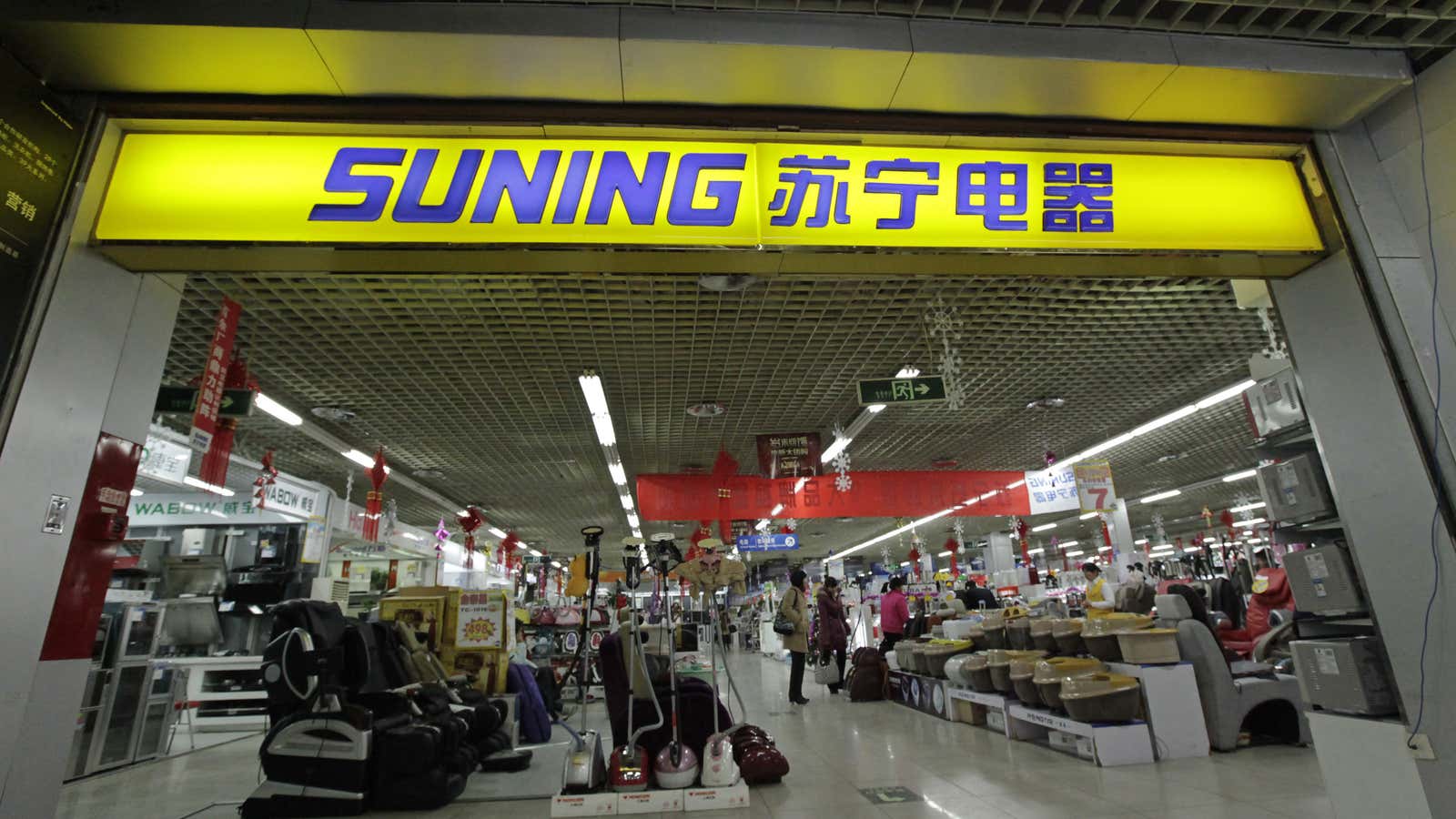China’s e-commerce industry is growing so robust that some say it is replacing brick-and-mortar businesses altogether. So it’s unusual to see the nation’s king of e-commerce invest in actual bricks and mortar.
But that’s what has happened now that Alibaba has invested in Suning, one of the largest electronics retailers in China. The online giant is throwing 28.3 billion yuan ($4.63 billion) at Suning for a 20% stake. Suning, in return, will invest 14 billion yuan in up to 2.78 million Alibaba shares.
Alibaba describes the investment as one that will help it merge China’s brick-and-mortar infrastructure with the company’s dominance in e-commerce. For starters, Suning will open a store on Tmall, Alibaba’s business-to-consumer online mall, where it can reach more than 500 million users across China. And some Chinese big box stores have embraced Alibaba as a sales channel—one of Suning’s biggest rivals, Gome, opened a store on Tmall in 2013.
Suning will also join Cainiao, Alibaba’s network of logistics partners. According to Alibaba, Suning currently has eight national distribution centers, 57 regional distribution centers, 353 forwarding centers, and around 2000 last-mile delivery spots.
China’s e-commerce industry is leapfrogging its brick-and-mortar retail industry. Consultants iResearch estimate that gross merchandise value (GMV) hit 12.3 trillion yuan in 2013, with that figure set to grow 22% this year. The proportion of offline retail sales to online retail sales has been declining, from 11.2% in 2007 to 8.6% in 2013.
Suning is certainly one of the largest big-box retailers in China, with more than 1,600 outlets and 3,000 service centers across China. Last year, it brought in $17 billion in revenue. But that still pales in comparison to Alibaba’s Tmall, which brought in $70 billion in sales in 2013.
As a result, it’s likely Suning’s logistics infrastructure that Alibaba sees value in, rather than its in-store sales. The company earns money by facilitating online sales, and ensuring fast delivery despite the nation’s fragmented logistics network can help drive repeat purchases and keep vendors happy.
